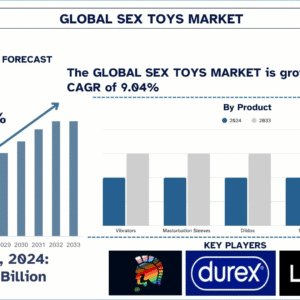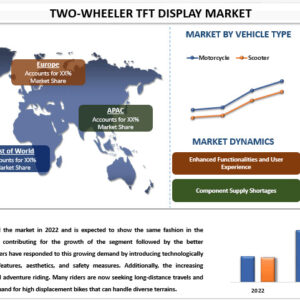When Melbourne’s summer hits full swing, the heat can get unbearable. Whether you’re in a compact city apartment or a spacious suburban home, staying cool isn’t a luxury—it’s a necessity. But here’s the question many homeowners struggle with: should you go for evaporative cooling or refrigerated air conditioning?
Both systems promise comfort, but they work in completely different ways—and choosing the wrong one can leave you sweating (literally) and overpaying on energy bills. Let’s break down how each system works, their pros and cons, and how to figure out which is the better fit for your Melbourne home.
Understanding the Basics
Before diving into details, it’s worth knowing what sets these two systems apart at their core.
Evaporative Cooling
Evaporative cooling is a natural process. It uses water to cool air—essentially, it mimics how a breeze feels after rain. The system pulls in hot outdoor air, passes it through wet cooling pads, and then pushes that cooled, moist air into your home.
Because it uses fresh air, it’s great for ventilation. It’s energy-efficient and best suited for dry climates like the ones often seen in regional Victoria during summer.
Refrigerated Air Conditioning
Refrigerated systems, on the other hand, use refrigerant gas and a closed-loop system to cool the air. The air inside your home is drawn in, cooled by coils, and then circulated back through ducts or indoor units. These systems can also heat your home when reversed (a feature in reverse cycle models).
Refrigerated air conditioning is precise—you can control exact temperatures and humidity levels, making it ideal for Melbourne’s unpredictable climate.
How They Work: The Science Made Simple
Let’s simplify it.
Evaporative cooling depends on evaporation. When hot air passes through wet pads, the air temperature drops because water absorbs heat as it evaporates. That cooled air then flows through your home. Windows and doors usually need to stay open slightly to let warm air escape and keep the system effective.
Refrigerated air conditioning uses a compressor and refrigerant to remove heat from indoor air and release it outdoors. The air recirculates in a closed system, keeping humidity and dust low.
In short: one system adds moisture, the other removes it.
Energy Efficiency and Running Costs
This is often the biggest deciding factor for Melbourne homeowners.
Evaporative Cooling:
Evaporative coolers are cheaper to run. They use about 75% less electricity than refrigerated systems because the only major power draw is the fan and water pump.
However, they do need water—so during drought restrictions, this might be a concern.
If you live in northern or western Melbourne where the air is usually drier, evaporative cooling can give you excellent comfort without blowing up your energy bills.
Refrigerated Air Conditioning:
Refrigerated systems cost more to run but provide more consistent and controllable comfort. They don’t rely on outdoor air conditions, so they work just as well on humid days.
You can pair them with smart thermostats or zoning controls to reduce energy waste—features often included when installed by trusted heating and cooling companies in Melbourne like DP Heating & Cooling
Cooling Performance and Climate Suitability
Here’s the thing—your local climate plays a huge role in performance.
Evaporative Cooling:
These systems thrive in dry heat. When humidity rises, efficiency drops. On sticky Melbourne days, evaporative coolers might struggle to bring down indoor temperatures effectively.
That said, if you prefer fresh, breezy air rather than icy cold, evaporative cooling feels more natural and less “mechanical.”
Refrigerated Air Conditioning:
Refrigerated systems handle any weather—humid, dry, or a mix of both. Melbourne’s weather is famously unpredictable, so many homeowners lean toward refrigerated systems for year-round reliability.
They’re especially ideal for families with asthma or allergies since the air is filtered and dehumidified before being circulated.
Installation and Maintenance
Evaporative Cooling Installation
Evaporative coolers are simpler to install and often less expensive upfront. A rooftop or window-mounted unit connects to ducts that deliver cool air throughout your home.
Maintenance is straightforward: clean or replace pads, check the water supply, and flush the system occasionally. Professional servicing once a year keeps it running smoothly.
Refrigerated Air Conditioning Installation
Refrigerated systems—especially ducted ones—require more complex installation. That’s why it’s important to rely on professional duct AC installation in Melbourne, Victoria by certified technicians.
These systems have indoor and outdoor units, refrigerant lines, and thermostats that must be precisely calibrated. Once installed, maintenance mainly involves cleaning filters, checking refrigerant levels, and servicing the compressor.
Tip: If you’re considering upgrading or replacing your old system, DP Heating & Cooling provides affordable split system installation Melbourne for homes and offices, ensuring efficiency and long-term reliability.
Air Quality and Comfort
Evaporative Cooling:
Evaporative cooling constantly pulls in fresh air, so you never feel that “stale” indoor atmosphere. It’s perfect if you enjoy ventilation and natural airflow. However, because it adds humidity, it’s not ideal for people sensitive to moisture or for areas prone to mould.
Refrigerated Air Conditioning:
Refrigerated systems offer cleaner air. Many modern models come with advanced filters that remove dust, pollen, and even bacteria. If someone in your home has respiratory issues, refrigerated cooling provides a healthier environment.
For commercial spaces, expert commercial HVAC services for businesses often recommend refrigerated systems because of their consistent performance and air quality control.
Environmental Impact
Evaporative cooling systems have a smaller carbon footprint since they use less electricity. But they consume water, which can be a concern during drought periods.
Refrigerated systems consume more power, but newer inverter models are much more energy-efficient and environmentally friendly than older ones. You can further reduce impact by setting moderate temperatures and scheduling regular maintenance.
Cost Comparison: Initial and Long-Term
| Aspect | Evaporative Cooling | Refrigerated Air Conditioning |
| Installation Cost | Lower | Higher |
| Running Cost | Low (uses less electricity) | Higher (energy-intensive) |
| Maintenance | Simple and inexpensive | Requires periodic servicing |
| Performance in Humidity | Decreases | Unaffected |
| Air Quality | Adds moisture | Dehumidifies and filters air |
So, while evaporative cooling saves on energy, refrigerated systems deliver more precise comfort and control.
Choosing the Right Option for Your Melbourne Home
Here’s how to decide:
- If you prefer natural airflow and live in a dry area, go with evaporative cooling. It’s eco-friendly and affordable to run.
- If you want year-round comfort—cooling in summer and heating in winter—a reverse cycle refrigerated system is worth the investment.
- If air quality matters most, especially for allergy sufferers, refrigerated air conditioning wins.
- If you have a commercial property, you’ll likely need the precision and performance of a refrigerated HVAC system.
You can always get an expert opinion. DP Heating & Cooling, one of the most trusted heating and cooling companies in Melbourne, can assess your property, lifestyle, and budget to recommend what’s best for you.
Maintenance Tips to Keep Either System Efficient
No matter which system you choose, maintenance is key.
- Change or clean filters every few months.
- Schedule a professional inspection at least once a year.
- Seal duct leaks to prevent energy loss.
- Check thermostat settings—aim for around 24–26°C in summer for best efficiency.
- Clear outdoor units from leaves or debris to improve airflow.
Small habits like these can cut energy costs by up to 20%.
Conclusion: Comfort Comes from Choosing Right
Both evaporative and refrigerated air conditioning have their strengths. The real question is: what matters most to you—energy savings, air quality, or versatility?
If you want fresh, breezy comfort, evaporative cooling is a great match. But if you’re after all-season performance, precise temperature control, and cleaner air, a refrigerated system is worth every dollar.
When in doubt, talk to the experts. DP Heating & Cooling provides reliable advice, affordable split system installation Melbourne for homes and offices, and professional duct AC installation in Melbourne, Victoria by certified technicians. Their team ensures you get the right system that fits your home, your comfort needs, and your budget.
Ready to upgrade or install your cooling system?
Contact DP Heating & Cooling today—your local specialists for heating and cooling solutions across Melbourne.
FAQs
- Which system is cheaper to run: evaporative or refrigerated air conditioning?
Evaporative cooling is usually cheaper because it uses less electricity. However, its performance drops on humid days, unlike refrigerated systems that work consistently year-round. - Is evaporative cooling good for humid weather?
Not really. It’s best suited for dry climates. On humid Melbourne days, the cooling effect isn’t as strong. - How often should I service my air conditioning system?
At least once a year. Regular maintenance keeps energy bills low and prevents breakdowns during summer. - Can refrigerated systems also heat my home?
Yes, reverse cycle models provide both heating and cooling, making them a versatile option for Melbourne’s changing seasons. - Who can I call for installation or maintenance in Melbourne?
Contact DP Heating & Cooling—one of the most trusted heating and cooling companies in Melbourne—for expert advice, professional installation, and reliable servicing.


